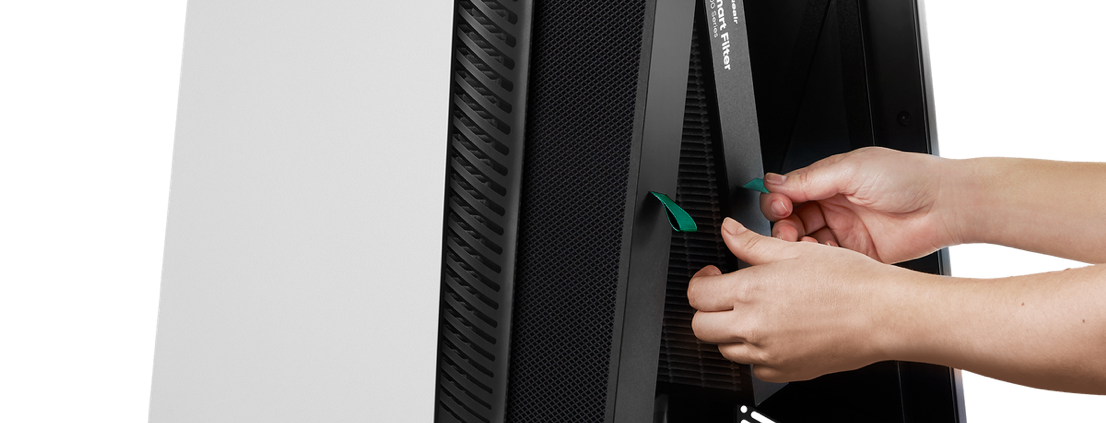What Air Filtration Systems are used in Hospitals?
The 2020 pandemic highlighted the critical importance of good air filtration in medical settings. A University of Cambridge study found that an air filtration system in a Covid-19 ward successfully removed almost all traces of the airborne virus.
But what sort of air filtration system is suitable for a hospital setting? And how do hospital air filtration systems differ from the sort of systems you might find in the home?
A Quick Guide to Air Filtration in Hospitals
An off the shelf, one-size-fits-all approach to air filtration is unsuitable for a healthcare setting. Different areas of the hospital will have different requirements.
Waiting rooms and other public areas will need a good supply of clean air to prevent the spread of infections among staff and outpatients. Operating theatres and other treatment areas will have much more substantial air filtration needs. Other parts of the hospital, including laboratories and storage areas, might not handle patients directly. But good air filtration will still be necessary to reduce exposure to potentially harmful chemicals.
There’ll be strict regulations governing the hygiene standards in every area of a hospital – and these regulations will often extend to air quality. They might specify a set number of air changes per hour (ACH), for example. They might even specify the exact sort of air filtration equipment required for each healthcare setting.
What Air Filtration Systems Are Used in Hospitals?
Hospitals rely on a combination of specialist heating, ventilation and air conditioning (HVAC) systems and high-efficiency particulate air (HEPA) filters to regulate airflow, and to prevent the spread of viruses and bacteria.
Any air entering the hospital might first pass through a series of filters before it’s allowed to circulate. These filters will reduce the levels of potentially harmful particulates in the air, such as dust, pollen, and pollution from nearby roads.
In some areas, static cooling systems will cool the air without circulating it. But in areas where infection control is paramount – such as wards and operating theatres – dedicated air filters will work to trap any airborne contaminants while delivering a set number of air changes each hour.
What’s The Difference Between a Hospital Air Filtration System and a Domestic Air Filtration System?
Hospital air filters differ from the sort you might find in your home in a number of ways. They’ll likely be larger, more powerful and catch smaller particulates as they’ll need the extra performance level to suit the healthcare setting.
Hospitals might have to filter the air in a much larger space than they would in the home. But whereas you might place a domestic air filter on a surface, a hospital air filter will likely be mounted on the wall or the ceiling. This helps to maximise the amount of usable space in the room, while also making it possible to direct the flow of air to wherever it’s needed.
Healthcare air filtration systems are also likely to be much more powerful, as effective infection control in a healthcare setting often depends on a substantial number of air changes per hour.
Lastly, hospital air purification systems often use much finer filters. An air filtration system in the home is designed to capture dust, pet dander, and other common pollutants. But an air filtration system in the hospital will be capable of removing much smaller contaminants – such as viruses.
Examples of Air Filtration Systems for Healthcare Settings
Our range of HealthProtect air purifiers are specifically designed for hospitals and healthcare settings.
The BlueAir HealthProtect 7740i Air Purifier can deliver complete filtration ever 12.5 minutes in rooms as large as 62m². Its filters can trap up to 99.97% of particles down to 0.1 microns. And it doesn’t just trap tiny virus and bacteria particles – it kills them too, using a combination of low air draft and plasma charging. Meanwhile, a gentle stream of air prevents any germs from building up on the filters.
As well as stocking powerful air filtration systems for hospitals, we also offer bespoke air quality monitoring systems. We can assess the air quality of your premises and advise on a solution to help prevent exposure while ensuring both staff and patients can breathe cleaner, healthier air.
Want to talk about how we can help reduce air pollute and improve the air quality in your hospital? Get in touch to talk to one of our air purification experts today.



